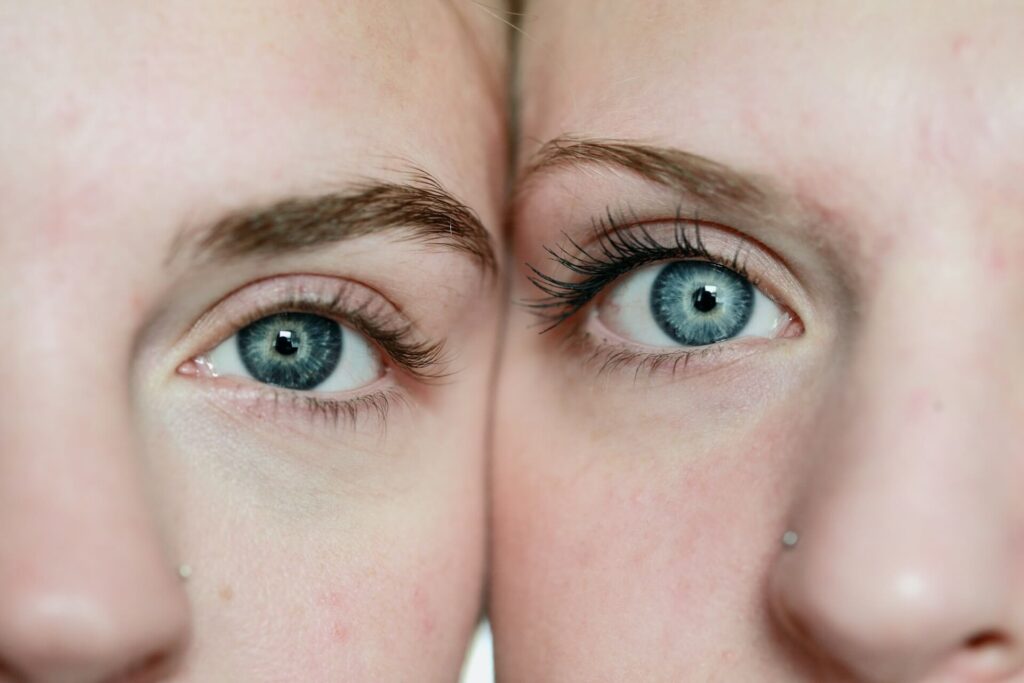Introduction to Collagen:
Collagen is the most abundant protein in the body. It accounts for about 30% of our body’s total protein. It is the primary building block of our skin, bones, muscles, and tendons. The main purpose of collagen is to provide structure and support to all the connective tissues within the body. It is also involved in the essential processes of our body like blood clotting, healing wounds, and protecting the nervous system.
Types of collagen in the body and where it is found:
There are a total of 16 different types of collagen in the body but let’s discuss the 5 most common ones:
- Type 1: It is the most abundant type of collagen, making up about 90% of our body’s total collagen. It provides structure to the body including connective tissues, bones, teeth, and skin.
- Type 2: It is found in cartilage around the joints
- Type 3: This type supports the muscles, organs, and arteries structurally
- Type 4: This type of collagen is found underneath layers and membranes of our skin
- Type 5: This is found in hair and the placenta during pregnancy
Our body uses two distinct amino acids to produce collagen in our body: glycine and proline. To obtain these amino acids for collagen synthesis, your diet must include sufficient amounts of protein. As we age our bodies produce less collagen. Thus, it is important to continue eating foods high in protein, such as meat, poultry, turkey, fish, and shellfish. Dairy products like milk and yogurt, eggs, lentils, and tofu must also be part of a balanced diet.
The science behind Collagen for skin:
As we grow old, our bodies produce less collagen naturally. The lack of collagen affects the way our skin looks. It loses elasticity and hydration, causing wrinkles and an old appearance. Collagen fibres can be further damaged by environmental factors such as smoking, sun exposure, and excessive sugar intake, which speeds up the aging process of the skin.
This is why more and more women are turning to collagen supplements to keep their skin youthful even after they have aged. Collagen helps in improving skin health by enhancing elasticity, and hydration, and reducing wrinkles.
Collagen and skin health through diet and lifestyle changes:
By enhancing your diet and lifestyle changes and by taking supplements, increasing collagen levels in your body is achievable:
Foods to boost collagen levels:
Eating nutritious meals can help your body produce more collagen. Your body puts together the amino acids proline and glycine to create it.
- High-protein meals including chicken, fish, steak, eggs, dairy, and legumes contain these acids.
- Copper, zinc, and vitamin C are among the other minerals that also aid collagen production.
- Citrus fruits, tomatoes, and leafy greens are good sources of vitamin C.
- Beans, whole grains, nuts, and seafood can be consumed for copper and zinc.

Lifestyle changes:
To protect your skin one must limit sun exposure and use sunscreen when going outdoors. One must also quit smoking and maintain a balanced diet to improve collagen levels in our body. Doing regular exercise and getting enough sleep can also support collagen for the skin.
Other ways to boost collagen for skin rejuvenation :
Individuals are researching methods to increase the amount of collagen in their skin to prevent wrinkles and other aging symptoms. Here are some tips to adopt in your daily life to increase collagen in your body:
Collagen supplements:
Collagen supplements, especially hydrolysed collagen, are broken down into smaller peptides that the body can absorb more easily. These peptides improve the skin’s hydration and elasticity by encouraging the production of new collagen. Studies have demonstrated that consuming hydrolysed collagen supplements can significantly improve skin health as compared to placebo treatments,
Hyaluronic acid:
Hyaluronic is a compound that boosts collagen production. In a study conducted in 2014, experts treated wounds in mice with either water or hyaluronic acid. The one with hyaluronic acid improved more than those treated with water. Dermal fillers that are used to reduce fine lines also contain hyaluronic acid. Research from 2020 confirms that combining hyaluronic acid with purified polynucleotide also helps boost the amount and quality of collagen in the skin.
Vitamin C:
Vitamin C is known for its healing properties and is essential for the production of collagen. If deficient, this can lead to low levels of collagen in the body resulting in a serious condition called scurvy. The human body cannot produce its own vitamin C, thus it has to include it through diet. Food sources such as citrus fruits, red peppers, strawberries, etc are rich in vitamin C. Many skin care companies add vitamin C in their protective creams due to its benefits for the skin.
Aloe vera gel:
Aloe vera gel has soothing properties and is often used to treat skin after sunburn or rash. In 2015 research, experts gave people an extract of aloe vera gel to be taken orally. After 8 weeks of use, they had better hydration in their skin, fewer wrinkles and their levels of collagen almost doubled. This concludes that aloe vera is helpful for the growth of skin cells.
Ginseng:
Ginseng is a plant-based substance with a range of health benefits. It has anti-inflammatory and antioxidant properties. Experts suggest that it may also help in preventing aging in skin cells.
Antioxidants:
Antioxidants help shield the body from free radicals which are chemicals that the body creates during metabolism. Free radicals can also enter the body by chemical exposure, such as those found in tobacco smoke. A variety of antioxidants may aid in the protection and renewal of the skin by encouraging the formation of collagen, Many plant-based diets include antioxidants.
Skin rejuvenation patches:
New in the market are skin and hair rejuvenation patches. These patches help give youthful skin and healthier hair. These patches are fairly easy to use and can be incorporated in daily life without the fear of being forgotten.
Other things like the use of retinol and getting light therapy can also lead to increased collagen growth and improved skin.
Benefits of collagen for skin:
Collagen helps you look youthful and hydrated. Let’s discuss the benefits in detail:
- Improved skin hydration: Collagen supplements help in maintaining the skin’s natural barrier that enhances its ability to retain moisture. Due to increased moisture, the skin feels softer, more hydrated, and less prone to dryness or irritation.
- Increased elasticity: As the collagen levels in the skin increase, the skin becomes more elastic. This means the skin can stretch and return to its original shape more efficiently. This elasticity reduces the appearance of wrinkles and fine lines.
- Youthful skin: When the skin is hydrated and elastic, you can look young and fresh. Reduced wrinkles and fine lines can make you look younger.
Conclusion:
Collagen is an essential part of healthy skin providing strength, elasticity, and moisture. The natural production of collagen reduces as we age, resulting in dryness and wrinkles. Collagen supplements have been proven to benefit the skin by increasing its moisture, elasticity and decreasing wrinkles. Although taking supplements can be helpful, a balanced diet and a healthy lifestyle also promote the production of collagen naturally. Including fruits, vegetables and natural sources of protein in your diet can be a helpful solution in increasing collagen levels in the body. For people looking to improve the health of their skin by other means, collagen supplements are a popular option due to their potential advantages and low risk of adverse effects.


